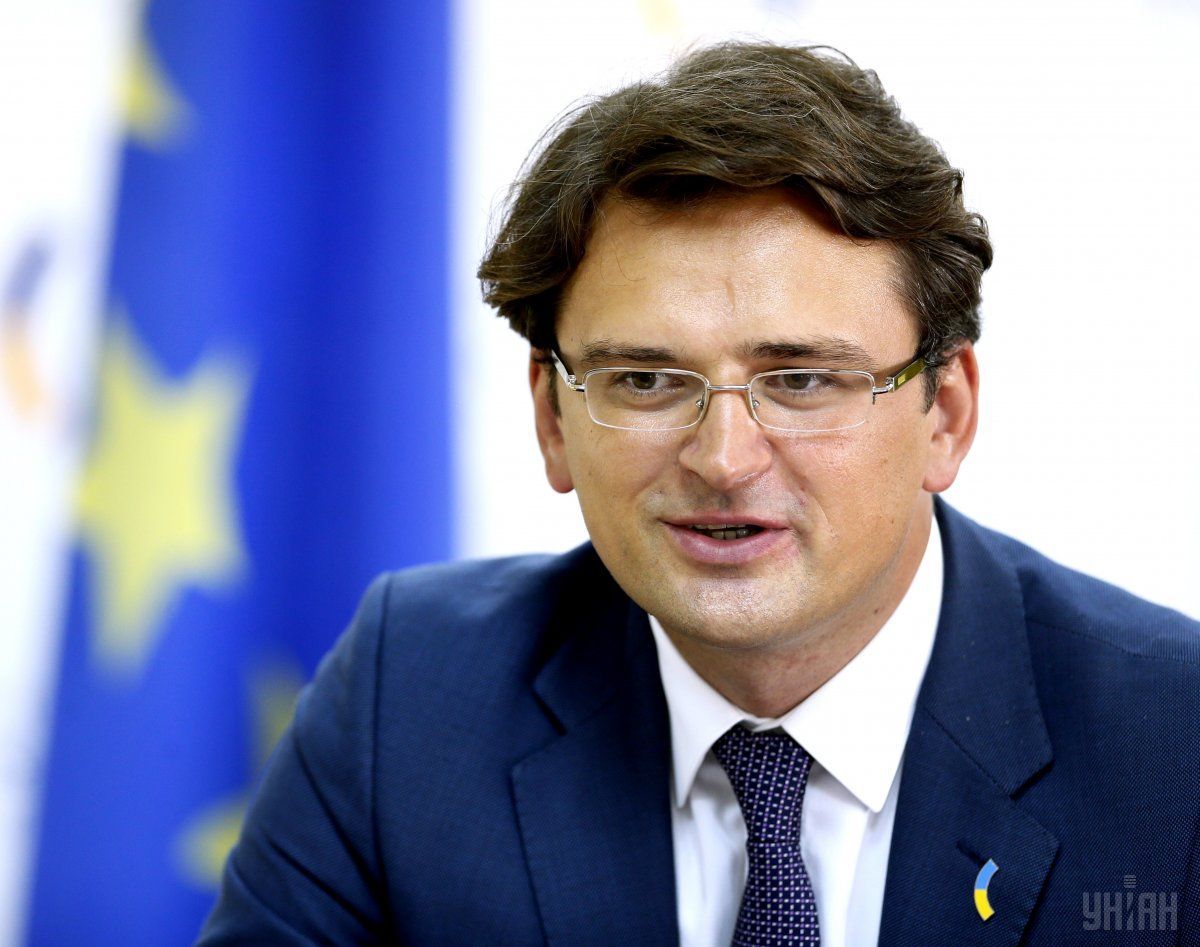
Ukraine's Permanent Envoy to CoE Dmytro Kuleba: "Surprisingly, some EU member states still believe dialogue is needed with Russia"
Permanent Representative of Ukraine to the Council of Europe, Dmytro Kuleba, sat down with UNIAN to talk about the diplomatic war with Russia, unofficial talks in this regard on international platforms, effectiveness of foreign policy built on emotional bonds between nations, expected attempts by Russia to meddle in the election campaign in Ukraine, and the need for Ukraine to not use Venice Commission as an arbitrator so much.
Recently, the Venice Commission has approved recommendations to Ukraine to abolish the requirement for electronic declaration of assets for anti-corruption activists. What will happen if our parliament ignores the recommendations?
This will lead to international criticism of Ukraine's failure to comply with the recommendations of the Venice Commission. There are no legal instruments to force the parliament to act or somehow hold it responsible. But in any way, this is first of all about political responsibility. That is, the issue of our failure to comply with these recommendations will be voiced at every negotiation, heard in public statements, remaining on top international agenda. The Venice Commission enjoys a rather high authority. Besides, there is a general rule in Europe that, if the Venice Commission says something, this should be followed. In fact, in recent years, we have a very good experience of cooperation, so it would be great to remain on the list of diligent states and not drop in the overall rating.
However, in general, we need to restrain this practice of forwarding any issue for a review by the Venice Commission. It has turned into some kind of external arbitrator as it's from Ukraine that it constantly sees all kinds of issues being submitted. I believe that we need to learn to negotiate common and mutually acceptable rules of political life within the country.
By ignoring the VC recommendations on e-declaration of assets for anti-corruption activists, are we creating additional problems in Ukraine's relations with the western community - the European Union and the United States?
I don't think it will have any systemic impact on the general agenda of our relations with the European Union, key European capitals, and Washington. But, speaking a diplomatic language, the agenda of any conversation will see both positive and negative issues, and this question will be in the negative part. We'll constantly be reminded of that. But I don't believe that this single issue will take hostage all others in our dialogue and cooperation with our partners.
Let's talk about the Russia issue in Strasbourg. On March 16, a meeting of the ad-hoc committee, the working group was due to take place in Paris on the harmonization of the work of the PACE and the Council of Europe with Russia's participation. They were to discuss proposals for Russia's return to the Assembly ... How did the meeting go? Was there anything fundamentally important for us?
There's the same old song. The Russians are desperately gathering a coalition in their favor to have their delegation return. And, accordingly, we hold our ground along with our other partners, trying to halt these efforts. The situation generally remains at a standstill, it's 50/50. A sort of a diplomatic war, you know.
Here, again, it's about an emotional affiliation. Over the years of my diplomatic experience, I've noticed one important thing, and this is a well-known rule. Until something doesn't really influence you personally, you don’t deal with this deeply. Once Britain saw a chemical attack carried out on its soil, its position has become tougher. This also applies to other countries that, for example, see cyberattacks launched in Russia or notice Moscow's propaganda influence. Once they do, they also immediately take a tougher stance on Russia.
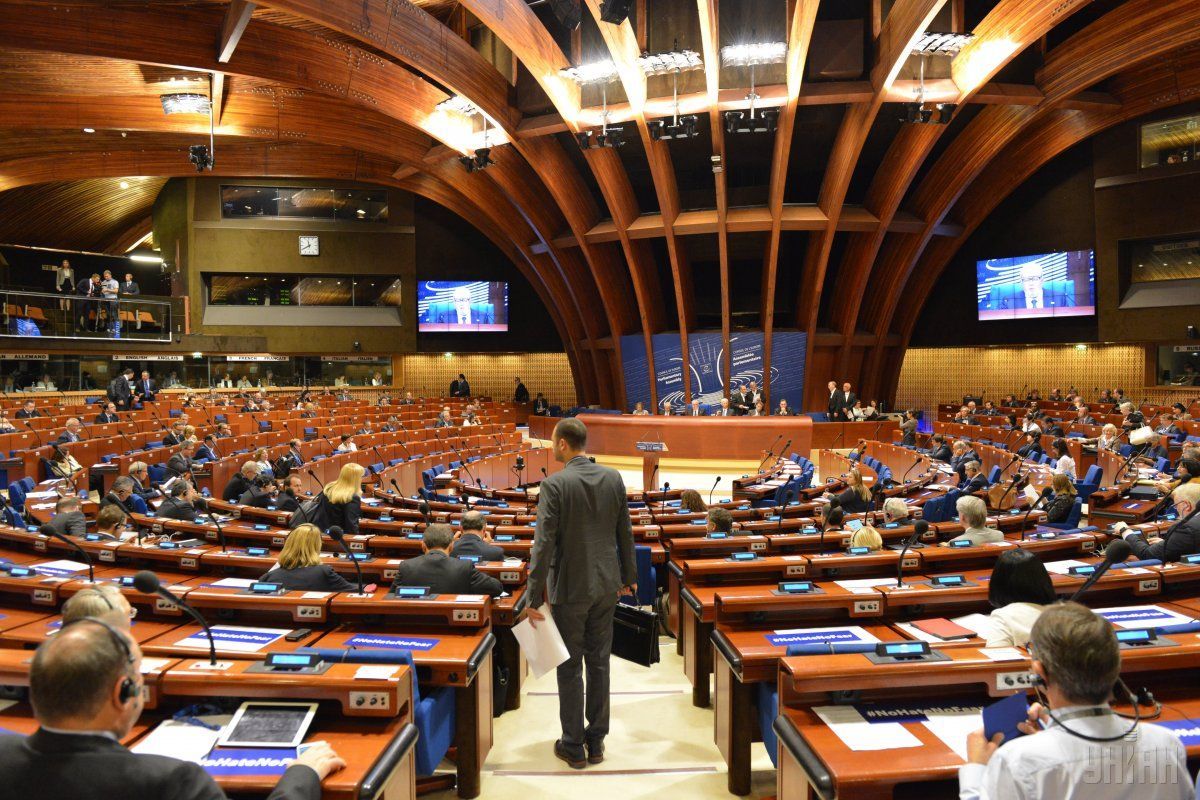
But, surprisingly, some EU member states still believe that there is a need for a dialogue with Russia. As long as the rooster doesn't peck them on the head, as long as Russia is not a direct issue of concern to them, they maintain a loyal attitude and, in principle, act as Moscow's advocates. This is really sad. History should have taught us all that it is impossible to allow an aggressor to act without any restrictions.
Speaking of the latest news, I can report that PACE President Michele Nicoletti, who failed to be elected to the new Italian Parliament and was expected to leave his post in April, will remain on his post until June. There was about 10% probability that he would stick around, and it was this 10% that played its role. I have every reason to believe that the main purpose of his prolonged stay in office is to continue this process [it is Nicoletti who is a key figure in the PACE leadership responsible for the dialogue with the Russian Federation on the return of the Russian delegation to the Assembly]. That is, he does not want to give up on these efforts, seeking to retain control and move forward. Accordingly, the June session of the PACE will turn into a true Armageddon.
The head of the Council of Europe is in favor of lifting sanctions against the Russian delegation to the Assembly, the PACE President insisted on continuing the dialogue with the Russian parliament ... Do you think that, taking into account all these developments, the Council of Europe believes in a compromise with Russia and that Moscow will go for some concessions?
You know, there are two groups of countries and officials in the Council of Europe. The former occupies a romantic position, believing that after the presidential election, Russia will become softer and kinder. And the latter group is a pragmatic one, realizing that nothing will change. We also belong to the latter. Russia's behavior will only worsen, and this is the core of our position. So, yes, there is hope in the Council of Europe that Russia might go for some compromise. But we, Ukraine, believe more in the fact that Russia must be pushed toward compromise.
Russia goes for compromises only when it is being pushed from all sides, surrounded, and then, with their head up high, they "heroically" say: "Of course, we've always wanted to do what you're asking us." So we are working to create such a situation for Russia. We are not categorically opposed to Russia returning to the PACE. We say that Russia can return, but to this end, they need to comply with the requirements of the PACE resolution adopted in response to Russia's aggression against Ukraine. And if they return without implementing these resolutions, what kind of a precedent will this create? In this case, the Council of Europe will lose any levers on its member states.
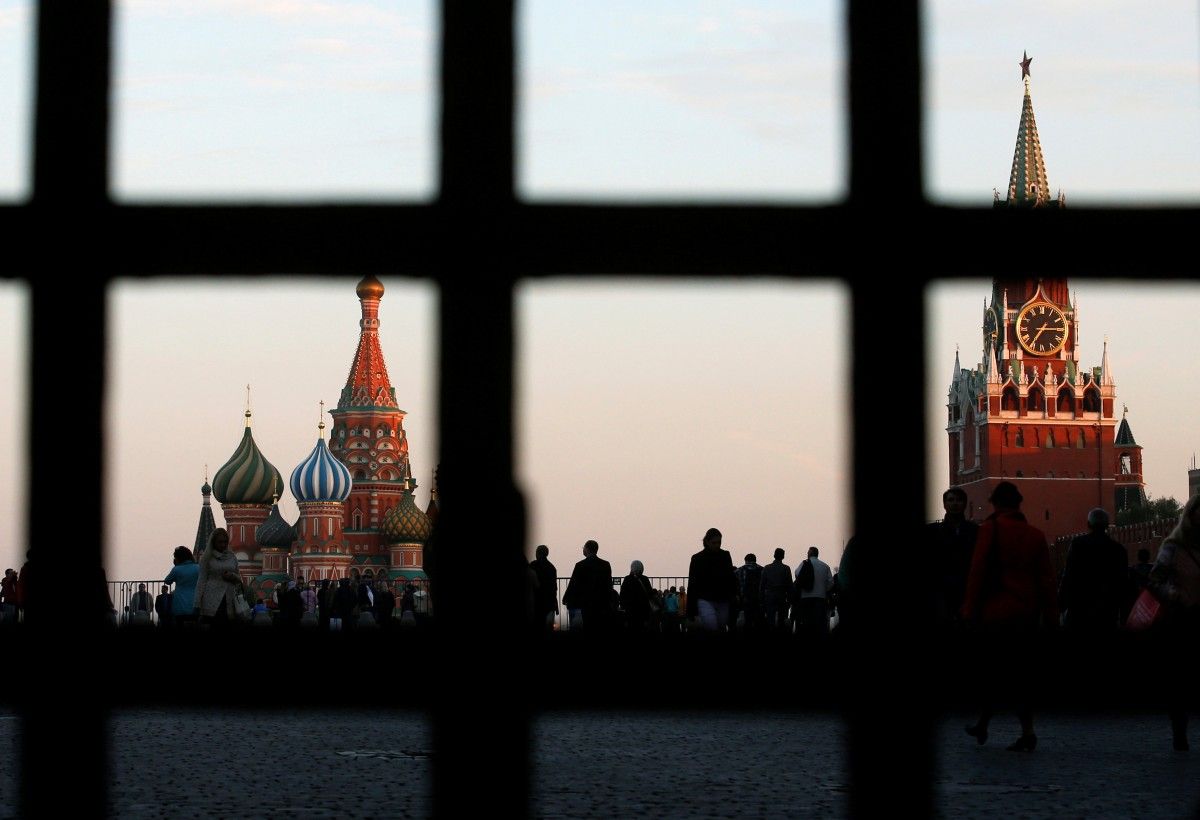
Let's consider the worst option - Russia returning without implementing resolutions. In your opinion, should the Ukrainian delegation leave the PACE in this case?
Perhaps, it's the first time I'm going to say this... Last autumn we had a meeting in Kyiv on this subject, and this question was voiced then. I was the only one at the table who opposed the Ukrainian delegation leaving the Parliamentary Assembly in case of Russia's unconditional return. The key word here is "unconditional". But the current dynamics, that zeal and frank hypocrisy of Russia's supporters trying to have them back has had an impact on my point of view. If last autumn I was categorically against our withdrawal, now I don't rule this option.
I am aware that such discussions are ongoing within our parliamentary delegation. Moreover, I have already heard from some other member states that they also had such discussions. That is, if this Assembly becomes incapacitated, if it is incapable of influencing anything, if it falls on its knees before the most cynical violator of international law, democracy and human rights, why do we need such an Assembly?
This is a very dangerous process. Those who are now trying to desperately have Russia back, in essence, seek to solve one problem without thinking that they are creating a dozen of other problems. And this is a very dangerous thing not just for the Parliamentary Assembly, but for the Council of Europe in general and for the whole system of international relations in Europe.
Russia has many problems with the European Court of Human Rights. Can this be our trump card?
We definitely do use it as a trump card and we will continue to do so. The practice of the European Court of Human Rights as regards our relations with Russia as an occupier state is favorable to us. However, we harbor no illusions that when serious court rulings start emerging related to Crimea and Donbas greatly impacting Russia, they will simply refuse to comply with them.
But it's still very important that we have these rulings. That is, firstly, the law will be officially on our side. Secondly, court decisions have no time limits, therefore, sooner or later, the time when Russia is held responsible will inevitably come. And they are also perfectly aware of that. That is why they are now trying to attack the court from different sides. That is, in general, they question its legitimacy, as well as certain legal positions of the court and the possibility of application of its authority. All this is done for the future, to protect Russia from the legal responsibility that it will inevitably have to bear.
Vice-President of PACE, Volodymyr Ariev, announced on Facebook the decision of the PACE Bureau that the Assembly would draft a separate report and a resolution on "Racial Discrimination Against Crimean Tatars in Crimea by Russia". Could this resolution lead to new anti-Russian sanctions on the Crimean issue?
I would not expect the resolution itself to lead to further sanctions. But the situation with Crimea is generally a bit more complicated. A number of our partners don't want to deal with the Crimean problem on a daily basis. They believe that it is enough to confine themselves to the fact of not recognizing the annexation of Crimea and once a year confirm their position on the occasion of the anniversary of the annexation, and that's all. Of course, we're not OK with this. Therefore, it is crucial for us to continue this debate and adopt a resolution in order to keep the issue of Crimea on the international agenda. Because, if we hold on to our point, sooner or later it will come to concrete actions. And if there is no discussion, there will be no action.
And, believe me, the Russians are terribly annoyed over the fact that Crimea is still being discussed somewhere. They try to do everything they can to prevent this because for them, the best situation as regards Crimea is pure silence.
I'd like to quote you: "There are currently no conditions for the Baltic scenario be repeated for Crimea (a number of Western countries had not recognized the occupation of Estonia, Latvia and Lithuania). There is every opportunity to create such combinations against Russia to stop the repression on the peninsula and move the issue of de-occupation forward." What opportunities and combinations were you talking about? After all, let's not forget that, for example, international observers still have no opportunity to even get to the peninsula...
Look, nobody believed that Ilmi Umerov and Akhtem Chiogoz would be released. Everyone said that it was impossible and that Putin would not let them go. But a diplomatic combination was found with the participation of President of Turkey, Mr. Erdogan, and Chiygoz and Umerov are free now.
You know, some of our partners who are quite friendly to us sometimes say: "We do not recognize the annexation, what else do you want from us?" But we need to acknowledge that when we show them what else can be done, they are ready to support certain steps. That is why it is Ukraine who has to moderate this process. That is why we are constantly coming up with initiatives, constantly offering something, looking into what we can be done.
The presence of international monitors in Crimea is a fundamentally important issue. But it will be a huge mistake if we get caught up solely on the issue of their access. We can't just sit here and wait until Russia allows the monitors to get there. We have to do something. First, we can and must monitor the situation remotely. Actually, other states and international organizations have found these niches. For example, the UN is monitoring the situation in Crimea remotely based on information they receive from the peninsula, including from human rights activists. Regular discussions are held in UNESCO and Human Rights Council in Geneva...
Secondly, we have to integrate the Crimea issue into the general agenda of relations with Russia. Conditionally speaking, here's some state presiding in the Committee of Ministers of the Council of Europe, and within the framework of its chairmanship, the meeting is held between this state's foreign minister and [Russian foreign minister Sergei] Lavrov. And at this meeting, the minister should raise issues of repression in Crimea, the issue of Ukrainian political prisoners in Crimea… This should be like a "To Our Father" prayer. He has to be telling him that if you, Russians, need something from us, we will give it to you if you go for concessions on Crimea.
That's the kind of combinations I'm talking about. This is a normal diplomatic practice when one issue is linked to others. If it's only Ukraine who does this, then, of course, our efforts will have no sufficient effect, given the current nature of our relations with Russia. To put it in other words, we are at war so we need our partners so that we could do it together. Russia will go for concessions, it's not invulnerable after all. But if no one demands anything from Russia on Crimea, they won't do anything...
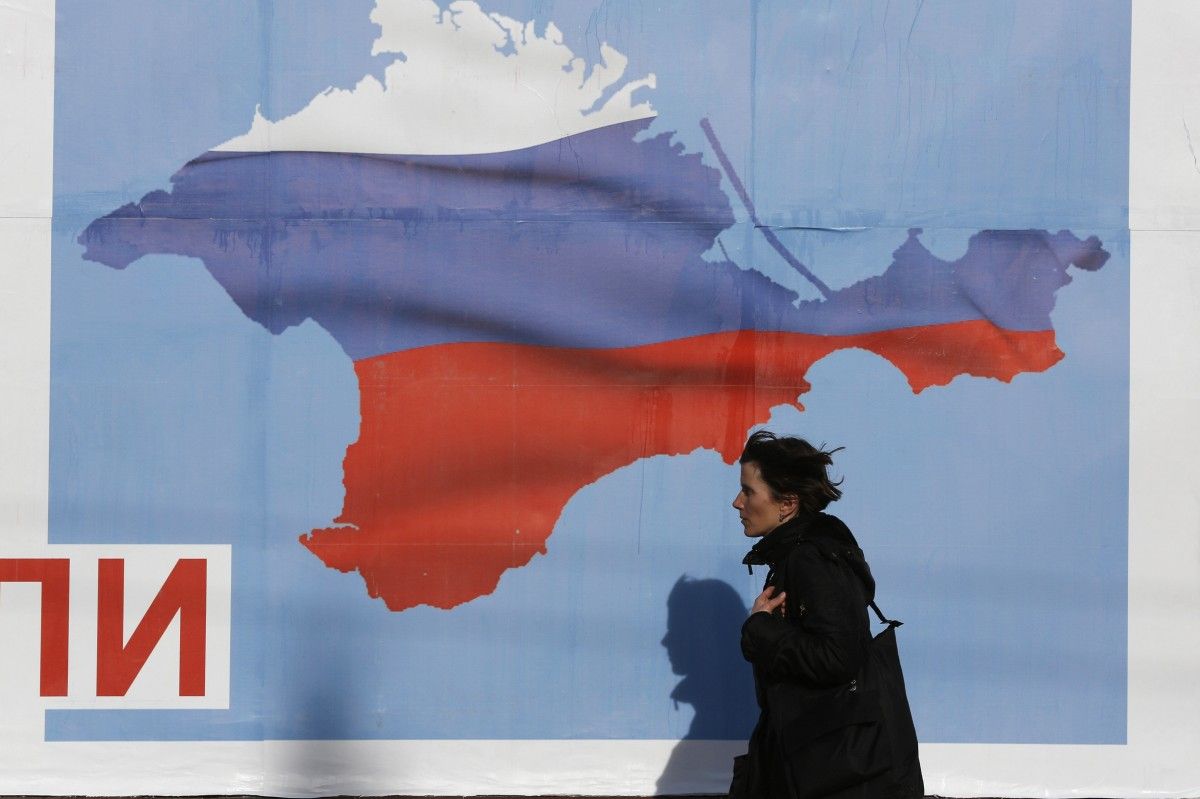
You previously reported that on February 26, a list of additional steps was submitted for the CoE consideration that the organization can do for Crimea. Is this about the combinations you've been talking about, or could you name something else?
Yes, it's about these combinations. Now this list is being considered by our partners. I have already discussed it with the Secretary-General of the Council of Europe and with several ambassadors, and I have other meetings scheduled. I won't disclose the whole list, because I don't want to violate any basic diplomatic rules, but I can name one more element. You probably know that from April 1, the new CoE Human Rights Commissioner, Dunja Mijatovich, steps in. We have certain hopes related to her appointment, so this list contains several steps directly regarding the future Commissioner. In particular, we will insist that the Commissioner present her assessment of the situation in Crimea as she has the mandate to do so.
Last year we adopted a decision unprecedented for the CoE Committee of Ministers, dedicated precisely to Crimea. That's when the Committee of Ministers clearly asked the Commissioner to submit such a report. Unfortunately, nothing has been done over this year, so we will insist that the new Commissioner will actually deal with the issue.
I hear the news that the Russian Commissioner for Human Rights, Tatyana Moskalkova, appealed to the UN, OSCE and CoE over Ukraine's blocking of voting in their presidential elections in diplomatic institutions. Later, she said that international organizations had not responded, "ignoring" her. Can this be considered our diplomatic victory?
Perhaps, as an Ambassador, I should be more diplomatic ... But even if international organizations react in some kind of a negative way to this decision of ours, we should treat such reaction philosophically. I believe that our actions are morally justified. The fact that Russia is now trying to set up a show out of it... They have staged their own "show" in Crimea, having held these fake elections. I think that, first of all, this is a diplomatic defeat for Russia. And this once again shows that the world is perfectly aware of cynicism of Moscow's actions.
My Russian colleagues, although they are very serious about Orthodox Christian faith there, have been breaching the rules set in the Bible. They believe that they can commit any crime, violate international law, human rights, but once someone else gets an inch beyond some procedural lines, they get hysterical and resort to accusations of all sorts right away. Recently, the British Defense Minister said a right thing: "Russia should go away and shut up." Specifically, when it comes to the Crimean issue, Russia should go away and shut up.
Should we hope that the illegal elections in Crimea, plus the fact of Russia's appeals being ignored by the international community, will somehow strengthen the negotiating position of the Ukrainian delegation?
Definitely so. See, it is fundamentally important that, four years after the annexation of Crimea, we still retain the Crimean issue on the international agenda. We do not allow Russia to ensure that the current status quo is recognized, if not de jure, at least de facto. And this is clearly a diplomatic victory for Ukraine.
I'd like to recall that, when Russia attacked Georgia in 2008, no sanctions were applied at all. And when the second Chechen war began, it was PACE who introduced sanctions for as "long" as six months. Today, Russia remains under sanctions for the fourth year in a row and, despite all their efforts to return to PACE, they just can't so far. The Crimea issue, which they constantly claim is "closed", remains open. And this is really due to Ukraine's efforts.
What are the moods today on the sidelines of the Council of Europe? As you say, they would prefer not to talk about Crimea and Donbas every day, but instead, would like to see a financial contribution from Russia...
I can't say that the support of Ukraine has weakened in the Council of Europe. It's just that the world isn't static, and other, more urgent problems start emerging. In fact, I am extremely grateful to a number of states that support us. And it's not only because they like Ukraine, but also because they understand that we are on the right side of history. We are trying to protect international law, democracy and human rights, and they share these values.
I would describe the general mood in the Council of Europe as fatigue from the confrontation with Russia. Russia is constantly creating problems requiring a certain reaction, and governments in a number of countries are not ready to react rigorously. But one needs to be more resolute in order to strike a response. It could be a diplomatic blow, but it should be precisely a blow. Russia respects force and it doesn't respect the weak.
The talk has been spinning that Russia will be meddling in our upcoming elections. I'd like to quote your comment on this: "Russia only has as much as two scenarios: either to bring people loyal to them to power [in Ukraine] or destroy our country. We can hinder both scenarios by means of three elements: strengthening the army, the strengthening state institutions, and strengthening social unity." You called social unity as a key factor. What do we have to do to strengthen social unity?
In the next two years, the communication front will remain the key one. That's because the first tactical goal, as you quoted me, is the election. Accordingly, now in the Ukrainian information space, we'll see total obscurantism, and even more oil will be added to this hellfire. Some will do this out of sincere reasons, because of their beliefs, but, to a large extent, it will be Russia who will be doing it through various channels. Therefore, I have emphasized social unity, because if there is none, you can neither build normal state institutions nor a normal army nor elect authorities.
Unfortunately, we are entering this period in a frankly weak position, because in recent years Ukraine has seen public consciousness being burdened by negative connotations. We perceive everything through terribly negative lenses as if everything is "in tatters". All of this is first of all the result of information influence on individuals. When the television and social networks bomb people every day with constant "negativity", people begin to perceive the world precisely this way. We live in a world where any reality can be easily constructed. Unfortunately, in recent years, the reality of an apocalypse has been constructed in Ukraine, which absolutely does not correspond to an actual reality. The reality is much better than the constructed one, so we have to do something about it. For Russia, on the contrary, this situation is beneficial. And they will try to work further toward making frustration and anger of Ukrainians intensify.
There is no universal recipe for how this could be stopped. Perhaps this sounds very naive, but there is one thing that everyone should realize. The authorities, opposition, civil sector, and media must realize it's the state that's at stake. Everyone needs to come to their senses just to save the state so that we had a place where we could continue our desperate struggle for everything good against everything evil.
At the last week's Paris Book Fair, Irena Karpa managed to convey to President Emmanuel Macron a book by Oleh Sentsov. Do you think this was of any diplomatic significance? What do you think in general about the potential of cultural diplomacy as an instrument for defending our interests in European structures?
I can't give an objective comment here because I have long been an advocate of cultural diplomacy. While working in Kyiv in 2014-2016, I believe I "raped" everyone in intellectual terms, promoting the need to develop cultural diplomacy and launch this process on a full scale.
We live in a world where emotional bonds become stronger than factual ones. And Ukraine should leave its mark in relations with our partners. Conceptually speaking, every capital city asks itself: "Why do we need this country?" There are security considerations, economic considerations, but there also are cultural considerations. And historically it has been proved that the strongest bond is established through the tools of culture. They cause empathy, real understanding, and they can become a base for building relationships. Take Russia, for example. If you come to France and ask what Russia is to the French, they will remember culture, Russian literature, composers… There's this emotional connection, which then has an influence on politics.
But don't they name Putin?
Putin is a temporary phenomenon. He is now the leader of the Russian state. But Russia as a whole, as a country, will be associated in France, first of all, with cultural emotional factors.
The fact that over the 20 years of independence, Ukraine had not systemically and civilizationally engaged in the development of cultural diplomacy, was either a deliberate crime or a crime of negligence. You can't build an effective policy without having a strong emotional bond between countries and nations. And it's culture that creates these bonds.
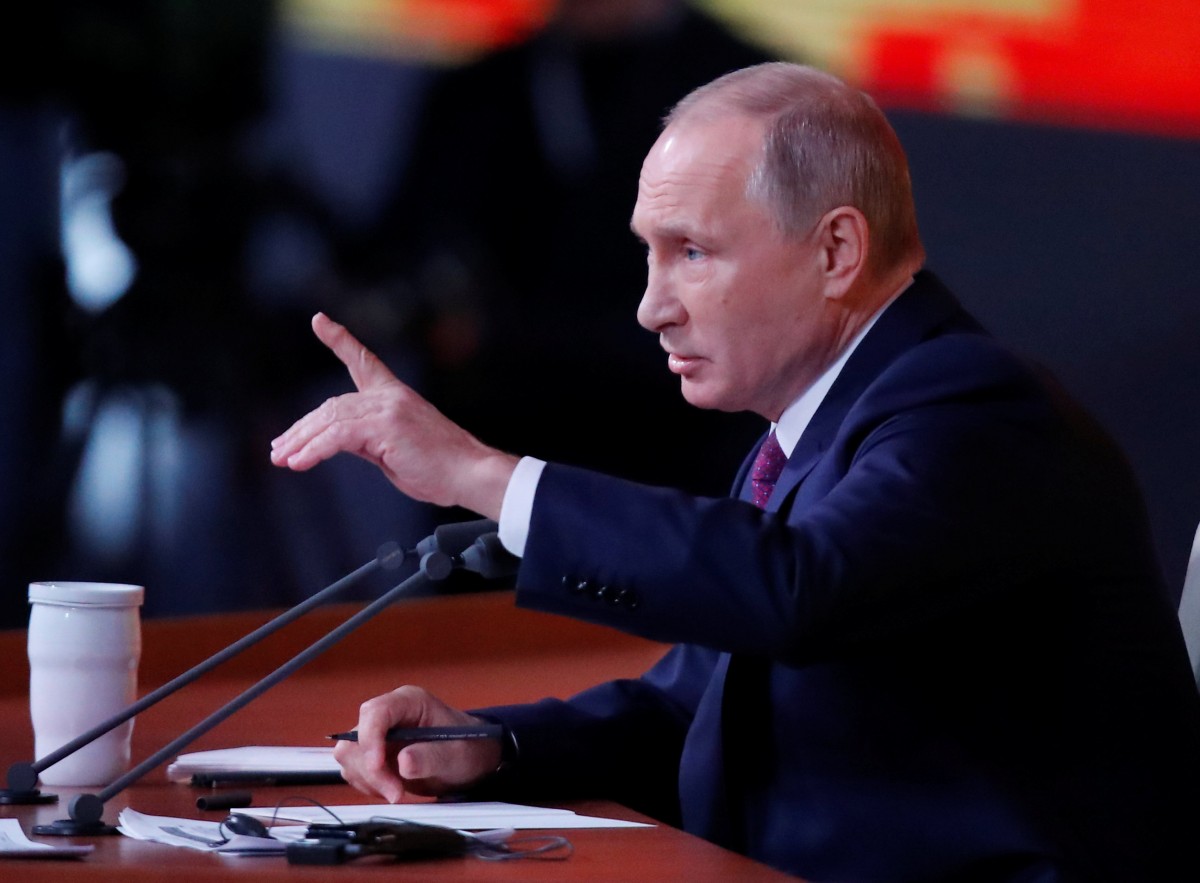
I can state one example. Three weeks ago, there was a concert by [a Ukrainian band] Dakh Daughters in Strasbourg. The venue was full, and at the end of the show, the locals gave them a standing applause. And the girls from the band, having played the entire show in the classical cultural format, eventually raised the Ukrainian flag and shouted: "Glory to Ukraine!" With this single act, they actually did a great job, greater than I, as an Ambassador, would have done attending various events and saying "Glory to Ukraine!" Same is with the case where Irena [Karpa] was able to give Sentsov's book to Macron – this is just awesome. In such a short dialogue, you can achieve a much closer emotional bond than as a result of dozens of diplomatic meetings or distribution of documents.
On your Facebook page, you recently wrote about your visit to the Strasbourg library and turned to your friends for advice on which book you should contribute to the library fund. Have you already made up your mind?
I have collected all the comments that there were out there. Now there is someone in Kyiv who is gathering the books according to a list at my request. I think that by the end of the next week, they will be in Strasbourg and we will give them to the library. See, even Russia has a special program, where they give out grants to libraries across Europe to buy books in Russia. This is a systemic cultural diplomacy pursued for years...
We are now taking our first step in this regard, handing over our books to the Library of Strasbourg. However, we want to go further and set up contacts between this library and one of the leading Ukrainian libraries so that they could work professionally together. This will also contribute to cultural diplomacy. As for books, I personally prefer ones that explain modern Ukraine. I am a real history fan, but it is now very important to explain to our partners, friends and those who have not yet become our friends the processes Ukraine is undergoing today.
Can you name a few books that will be part of this gift?
I am really looking forward to seeing two of them, and also a series of books. The first one has been published by Arthuss, titled "25 Years of Presence – Contemporary Ukrainian Artists". That's an edition in English, a really cool project. They have collected interviews with and works by major Ukrainian artists who have been working for the past 25 years. This is a real cut of the Ukrainian cultural contribution to the world of art for the past quarter of a century. Another book is a product of Osnovy Publishing House, titled "Decommunized: Ukrainian Soviet Mosaics", also in English. The project stands at the junction of politics and art, showing how Ukraine has been transforming.
The third one is a collection of books by a historical project "Likbez". And although, as I said, I emphasize the present, I want to convey to the French the book with an unbiased look at the history of Ukraine.
The Foreign Ministry recently said people could apply for the post of the head of the "Ukrainian Institute", the heart of our cultural diplomacy, an institution that should engage in a comprehensive presentation of Ukraine worldwide. Do you have your own vision of who should hold this post?
I know a couple of people I would like to see head this institution. However, due to different circumstances, they will not even take part in the competition. But I rejoice over the two things. Firstly, a generation of cultural managers has been raised in Ukraine, among whom we can actually choose, who are able to compete for such a position. This is a very responsible area because you are becoming, in fact, a leader of cultural diplomacy, getting into the spotlight, with everyone starting criticizing you (because you move from the non-state sector to the category of authorities, which everyone likes to criticize).
Secondly, I spoke with Minister Pavlo Klimkin on this subject, as well as with my colleagues directly involved in the competition. I can assure you that the vision of both the minister personally and the whole ministerial team is very clear - to create an effective institution without any micro-management from above or any political influence. I think that at the junction of these factors, a strong figure could be selected. But in the end, we will need to rejoice over the first year of the new head's work rather than the very fact of their selection. That's when we'll have clearly understood the parameters of their work and they will have achieved certain results.
I would also like to discuss a bit the CoE's Action Plan for Ukraine for 2018-2021. The reports concerning this Plan tell us about an ambitious goal of implementing the best European standards in the field of human rights, rule of law, and democracy in Ukraine. This sounds great, but how shall we translate it into Ukrainian realities? I find it hard to imagine that some resolution can stop members of any radical group from trying to bully national minorities...
You know, the Action Plan is like Google Maps. You can make a route from point A to point B, and this application will show you the best option, but it does not guarantee that you will reach your destination exactly according to the parameters you've initially set. The same is with the Action Plan. In reality, Ukraine now has a very high demand for this Plan, and, in principle, there is a political will to work on it.
Now that you've mentioned radicalism, let me explain this to you with the following example. Here is a particular problem - nationalist groups that do not like national minorities (which, unfortunately, is the case for every European state). What do we need to do? We need the police not to turn a blind eye to these crimes, and to this end, the Action Plan provides for the assistance to police to strengthen their institutional capacity. Or, theoretically, we will need to update our legislation, and experts from the Council of Europe will help us draft it. Of course, we need the court to punish the offenders. To this end, our judicial reform is being supported. And to prevent these things from happening, we need an information campaign telling people that migrants are a good thing and national minorities are great because they enrich society. All these things can be done within the framework of the toolkit provided to us by the Action Plan. How much we will do and how effective we are will only depend on us.
Recently, there have emerged more reports about young radicals who interfere in various rallies. Has it ever stricken you that perhaps Ukraine in general, not a Facebook community in Kyiv, is just not yet ready for European values?
I don't know of any European society that can come out today and responsibly say: "We are 100% Europeans, we are all perfect." Perhaps this sounds weird, because when our people travel to the EU, they see order, wealth, and that everything is fine there. But if you dig at least a centimeter deeper into every society, there are some unpleasant things there, too. Being European, let's put it this way, is not a final destination but rather a continuous process, while Ukraine today is definitely in motion. However, the rise of the rightwing ideology in Ukraine, unfortunately, absolutely corresponds to the general trends across Europe. Therefore, there is nothing surprising here.
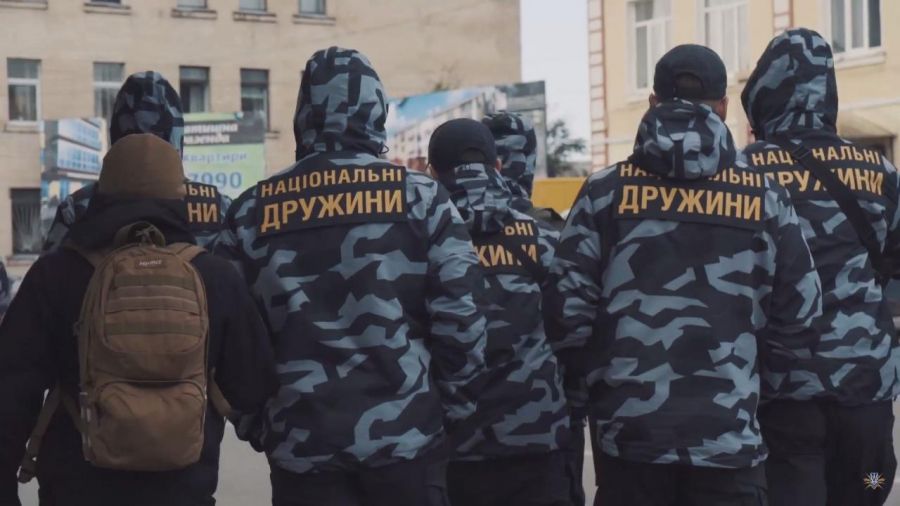
When I see these reports, they are upsetting me. The last thing we have to spill out our negative energy on today is national minorities. It's just a waste of resources. We have an external aggressor, so, please, everyone willing to fight is welcome to go fight off the external aggressor. We have internal aggressors, too, in the form of corrupt officials and adepts of the old ideology – they should be fought, too, but certainly not liberalism or diversity.
By the way, the problem with national minorities can have very dramatic consequences for us. There is a known trend of westward labor migration of Ukrainians, and everyone is crying about how we could stop it. But "going West" is a natural process, and you can't stop those who have made up their minds. In fact, we shouldn't brainstorm over how to stop migration, we should rather think about who will come to replace our migrants and where we will take labor force. If we keep being so radical about migrants and national minorities, then nobody will come here, we will have no sources to revitalize our job market, and the efficiency of society and the country as a whole will fall sharply.
On Ukraine's initiative, the Action Plan for the first time clearly states that it should contribute to the achievement of the objectives of the Ukraine-EU Association Agreement. Do you believe that the official Kyiv will work on its mistakes and not spoil the whole thing?
I, as our country's official representative in Strasbourg, assure you that we will not spoil anything. As far as I know, a non-paper on Ukraine was presented at the Council of EU Foreign Ministers in Brussels, on the EU policy toward Ukraine. And it is very well stated there that there are no simple decisions or ways, and that now it is necessary to protect Ukraine from the threat of internal populism, that's when some will be shouting "nothing has changed since 2014", "this is the end, shame to all of you, and get out!" Even our European partners realize it.
There have been plenty of changes, but even more changes are still needed. They can only be done if we realize that we are on the right path. If we start to make a U-turn again, suggesting that the path is wrong and that we have to do everything differently, we will go for yet another circle. Of course, somewhere there will be problems and somewhere the pace will be too slow, but somewhere it will be faster. But in general, this will be our movement in the right direction. That is why we wanted to link the Action Plan to the Ukraine-EU Association Agreement, so that all efforts – both external and internal - were made precisely to this end.
To say that "everything is in tatters" is the easiest thing to do. It's much more difficult to fix problems every day, so that "nothing is in tatters" and so that we could move forward. I am really grateful to those people in power, opposition, civil society, and the media who are set to move forward.
Iryna Shevchenko
Translated by Yevgeny Matyushenko

